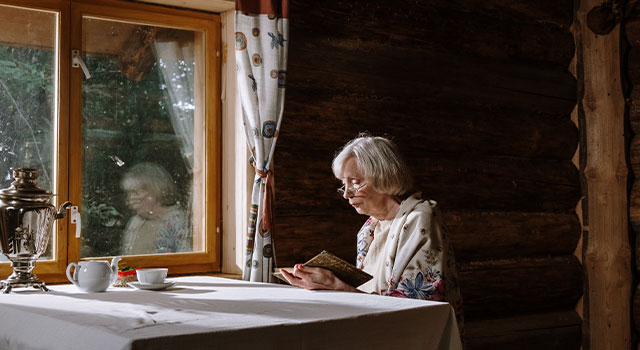 Age-related macular degeneration (AMD), a prevalent cause of vision loss in older adults, can have a profound impact on one's mental and emotional health.
Age-related macular degeneration (AMD), a prevalent cause of vision loss in older adults, can have a profound impact on one's mental and emotional health.
The progressive nature of the condition can lead to feelings of hopelessness, social isolation, and loss of independence. However, with the help of a comprehensive low vision rehabilitation program, patients can receive the necessary support and resources to manage their condition and prevent depression from taking hold.
At Low Vision Optometry of Southern California, we understand the challenges that come with visual impairment. We’re dedicated to providing you with the tools and resources you need to live a fulfilling life. Our team will work with you and provide low vision aids and devices, as well as teach you practical skills that can help you live more independently.
The Link Between AMD and Mental Health
Depression is a common mental health issue in older adults, but it’s especially common for people with age-related macular degeneration (AMD). In fact, up to 40% of individuals with AMD may experience depression at some point.
This correlation between depression and vision loss is understandable. As AMD progresses, it becomes harder to drive, read, watch TV, and do other activities. It can feel like the world has become smaller and lonelier.
The experience of depression related to macular degeneration can vary greatly from person to person. Some individuals may grieve their vision loss for a short time before adapting to their new normal. Others may experience prolonged periods of depression that only amplify the challenges of living with AMD.
It's important to know that seeking help for depression is not a sign of weakness. On the contrary, it is a brave and proactive step towards regaining control over your mental health.
Whether you're facing a short-lived episode of sadness or a prolonged struggle with depression, the right support can make all the difference.
What are Common Signs of Depression?
If you're experiencing any of the following symptoms, it's important to seek help as soon as possible:
- Negative thoughts and a pessimistic outlook
- Persistent feelings of sadness or emptiness
- A decrease in energy levels
- Withdrawal from social activities
- Lack of interest in things you once enjoyed
- Changes in appetite or sleep patterns
- Frequent episodes of crying
How Your Low Vision Optometrist Can Help
Low vision eye doctors often screen their patients with AMD for depression, but it's important to address these symptoms regardless of the cause. If you've experienced several of these symptoms for at least two weeks, we encourage you to speak with Dr. Richard Shuldiner or your general practitioner. With the right treatment, depression can be effectively managed, and you can regain a sense of happiness, purpose, and independence. Don't wait to seek help, as taking action now can improve your quality of life in the future.
How is AMD-Related Depression Treated?
Treatment for depression typically involves a combination of medication and/or psychotherapy.
However, for individuals with low vision, a comprehensive treatment program can be especially beneficial. This type of program provides patients with low vision aids to maximize their usable vision, while also offering psychosocial support to alleviate depression.
There are many low vision aids and devices available to help patients with AMD. One common aid is a magnifying glass or handheld magnifier, which can help with reading small print. Another option is a closed-circuit television (CCTV) system, which uses a camera to magnify and display images on a screen. For patients with central vision loss, there are devices like bioptic telescopes or miniature telescopes, which can help improve visual acuity at a distance. Lighting is also an important factor to consider. There are many specialized lamps and bulbs that can enhance the brightness and contrast of the visual field. Additionally, computer software and mobile apps can help by increasing font sizes, changing color contrasts, or reading text aloud. With the help of these low vision aids and devices, patients with AMD can improve their quality of life and maintain independence in their daily activities.
A successful treatment program for depression related to AMD should involve a team of healthcare professionals, including low vision eye doctors, a psychiatrist or psychologist, and occupational therapists who are trained in working with patients with AMD. These multidisciplinary rehabilitation programs address both the physical and emotional impact of macular degeneration.
Your Low Vision Optometry of Southern California Eye Doctor Can Help
At Low Vision Optometry of Southern California, we are dedicated to helping our patients regain their independence and improve their emotional and mental well-being. If you or someone you know is struggling with depression related to visual impairment, seek help as soon as possible. With the right support and resources, you can overcome this challenge and improve your quality of life.
To schedule a low vision consultation, contact Low Vision Optometry of Southern California in Corona today.
Our practice serves patients from Riverside, Orange County, Temecula, and Mission Viejo, California and surrounding communities.
